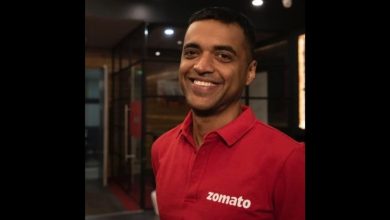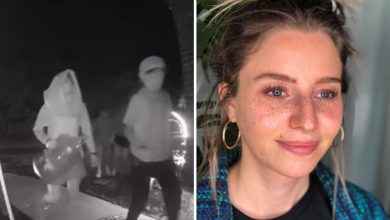Naved Jafri remembers dad Jagdeep: An iconic comedian who found it hard to smile after life’s tough knocks

“My father’s journey is a classic tale of a Bollywood extra who went on to become one of its most iconic comedians. A rank outsider, Jagdeep grew up in the 1950s in the Mahim neighbourhood of Mumbai, surrounded poverty and misfortune. Ironically, he made audiences laugh though he rarely himself even smiled. He was quite a serious man. Having faced so many obstacles in his early years of struggle, he used to often say, “I have seen so much in life that I can’t laugh anymore.” He simply found it difficult to burst into laughter at shallow humour or a crass joke. Only something truly deep could crack him up.
Born as Syed Ishtiaq Ahmed Jafri in the Datia drict of Madhya Pradesh, his childhood was tough. He had lost his father at a young age and later on, was affected the Partition of India as some of his family members had moved to Pakan. More personal setbacks lay in store for him when he and his mother landed in Mumbai around 1949-50. His own elder brother who had a home in the city was unwelcoming and unsupportive, forcing them to fend for themselves. Left with nowhere to go, somebody suggested they try their luck near Mahim Dargah, where my grandmother found work at a bhatiyar khana (community kitchen) while my father, who must have been around 9 or 10 years old, started doing odd jobs like selling soaps or kites on the footpath. One day, his life changed when a person came and told him that a film unit was looking for child artes for BR Chopra’s Afsana in 1951. He initially laughed it off but quickly changed his mind when he realised that he could earn a better livelihood working as an actor doing bit roles. Before this incident, he had never seen a film. Later on in life, he would smile at this memory, “Uss waqt khaane ko paise nahin hote the, film kya khaak dekhte (At that time, I hardly had money to eat, forget spending on a film).”
On the sets of Afsana, his Urdu background came to the rescue. While the other child actors found the courtly language that was demanded of them a bit of a mouthful, dad rattled off his lines convincingly. This was the beginning of his journey in Hindi cinema. He soon became much sought-after because of his natural style of acting. He played characters with names like Elaichi, Lalu Ustad etc, usually an orphan, footpath dweller or the ne’er-do-well but always with a heart of gold. He used to proudly recall that just for a small part of a boot polish boy in Do Bigha Zamin (1953) who befriends the hero’s (Balraj Sahni) son on his first day in the new city, Bimal Roy saab flew him to Calcutta. It was his first-ever flight! Then, he acted with none other than Guru Dutt saab in Aar Paar (1954) where his character of Elaichi was a street-smart who spoke flavourful Bombaiyya language fluently. Dad had seen many tapori types like Elaichi while living in Mahim. It came rather easily to him. His acting credo was— draw from your own life and the people and situations you have encountered along the way.
Jagdeep, Nanda and Daisy Irani in film Bhabhi. (Photo: Express Archive)
Brahmachari — A Turning Point
late ’50s my father had grown up and he got a lucky break to act as a leading man in three of AVM’s films, Bhabhi, Barkha and Bindiya. One of them was opposite Nanda. Despite the films being commercially successful, the AVM contract proved to be a major deterrent to his career as a Hindi cinema hero. Working for AVM, he lost out on a number of outside banner films which were ultimately made with other heroes. When his career as a screen hero failed to take off, dad was without work for a long time until at last luck shone on him again with Shammi Kapoor’s Brahmachari (1968). In the film, he had a plum role of a comedian who had many audience-friendly scenes (including one hilarious sequence in drag). He played Murli who has left his ruffian ways behind but life gets even with him when he gets caught up during one last job.
Shammi Kapoor, Manmohan and Jagdeep in Brahmachari. (Photo: Express Archive)
After Brahmachari’s success, the name Jagdeep became a word for comedy. Although he has featured in over 200 films it was Sholay in 1975 that was responsible for giving him his screen image especially the famous catchphrase, ‘Mera naam bhi Soorma Bhopali aise hi nahin hai.’ For a certain generation of movie buffs, he will always remain Soorma Bhopali. When my father turned director, he titled the movie after this widely popular character. The story goes that he had worked with writers Salim Khan and Javed Akhtar in a film called Sarhadi Lutera in 1966. Salim-Javed had a good personal and professional rapport with dad but the reason they recommended him for Soorma Bhopali was because they felt he was well-suited for the role. Soorma Bhopali was Javed saab’s creation. The character’s speech had an exaggerated Bhopali accent. From what I know, Javed saab used to be good at mimicry and he wanted Soorma Bhopali to speak not like a typical Bhopali man but actually like a blabbering Bhopali woman to achieve a heightened sense of comic effect. The conceit worked.
A Man Full of Stories
Nearly two decades later, Sholay’s Soorma Bhopali was used as a reference point in Andaz Apna Apna (1994). Many in the younger generation loved him as Salman Khan’s dad. Even though as a viewer I enjoy the goofy humour of Andaz Apna Apna, my personal favourite Jagdeep comedies are the slightly unusual ones — Ustadi Ustad Se, Agent Vinod, Apna Desh, Sangram and Qurbani. Each of his characters in these films are memorable because of the way dad brought his own unique interpretation. When people ask me what makes Jagdeep saab great, the answer is that he had a fine sense of comic timing which is so important when you are doing comedy. He was smart, quick on the game and very spontaneous and intuitive with his humour. When his co-stars would wonder why he made faces and how that qualified as comedy, he would explain, “Indian masses understand the language of emotions. A viewer in Madras or Calcutta might not get the Hindi dialogue but he/she can still read my facial expressions and laugh at the right places.” Also, his thinking was that sometimes slapstick helped camouflage weak writing.
Jagdeep played Salman Khan’s dad in the 1994 film Andaz Apna Apna. (Photo: Express Archive)
In personal life, dad was a man full of stories and there was never a dull moment with him. He often remembered the 1950s very fondly, how Guru Dutt saab was so encouraging to a young upstart like him or how Bimal Roy saab would respect his actors so much that when unhappy with a scene instead of losing his cool he’d take the arte aside and whisper to him/her in their ears. Dad had a close relationship with all his directors, be it Raj Kumar Santoshi and his father, the legendary PL Santoshi saab (Jagdeep acted in the director’s 1950s hits like Hum Panchhi Ek Daal Ke and Chalis Baba Ek Chor) or Ramesh Sippy and GP Sippy saab (Sazaa and Shehenshah). During his younger days, he spent his evenings mostly with writers and poets. He was friends with everyone in showbiz and was generous with his compliments to his contemporaries and younger actors. For example, he was a guest on a ‘Bollywood duplicate special’ episode of Boogie Woogie. After seeing Jagdeep Junior’s act he quipped, “You are better than me!”
There were many great names in Hindi comedy in his era: Johnny Walker, Rajendra Nath, Mehmood, Mukri and later on in the ’70s there was Asrani and Om Prakash. There was no jealousy between them. Only love and respect. Actors from the golden era could relate to each other because of their shared sufferings and hardships. As dad always said, “We were all broken. The industry gave us a home.” He was truly grateful to Bollywood for giving him a new lease of life. He never forgot that. We were touched the outpouring of love on social media and condolence messages we received after my father’s death on July 8, 2020 at the age of 81. I was happy to see that the industry and his fans had not forgotten him. Today, dad is no more but he has left behind his movies, his characters, all the stories he told us — and he has left behind us also (laughs), his children and grandchildren. Hope he is having a ball somewhere in heaven.”
(As told to Shaikh Ayaz)







